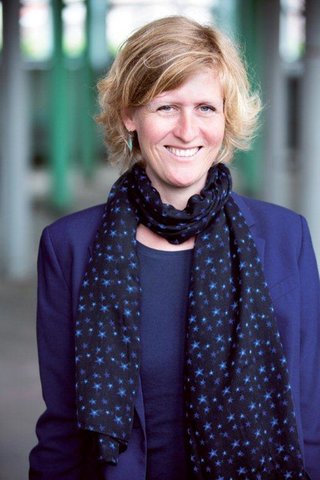Interview with
Work Package 7 Leader

Simone van der Burg
Ethics and Responsible design
What is, in your opinion, the most important legacy of IoF2020?

The IoF2020 project did a great job to get people together. Shaping this innovation community is perhaps the most important contribution of IoF2020, as not all the project use cases are moving at the same pace. In the future these collaborations need to expand even further. I think farmers should have a more important role in them: not only as clients who buy the technologies or consent to sharing their data, but as collaborators and co-managers of the data sharing network.
Looking back on your participation to IoF2020, what were some of the challenges that your work package encountered?

In terms of ethical matters, participants in IoF2020 as well as farmers were generous in sharing their reflections on data sharing and actively contributed to that. But we could give limited support to concrete Use Cases. Sometimes, Use Cases did not recognize the social or ethical problems they were encountering; others did see them, but thought that involving us to support them would just mean losing a lot of time. This is a pity, especially because digital technologies that ‘fail’, usually do not fail for technological reasons: they fail because intended users resist adopting them.

We had great examples of fruitful discussions, for instance Connecterra, who spent a lot of time and effort interacting with end-users and involving them in the innovation trajectory. Best practices such as these show that the technological and the social should not be thought of as two separate worlds, but that they are intertwined in innovation.
What would be your recommendations to young farmers who are hesitating to join such projects/use such technologies?

Our focus groups with young farmers pointed out that this target group is open to digital innovation, but also have well-founded concerns. If young farmers want to innovate, I would advise them to seek collaboration with a tech company who will listen to their concerns. In addition, young farmers could also shape their own trusted data sharing community, for example building on already established collaborations with other farmers (like a grower's association). In this way, farmers can harvest the benefits of digital farming, in a safe manner.

Until now, the role of farmers has been limited in digital farming innovation and it is time that this changes. Young farmers are well positioned to take a role in that, as this allows them to co-shape the future of their own profession